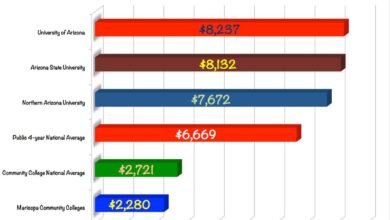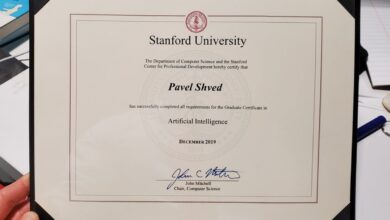Expanding Horizons: The Value of Higher Education

In an era where the demand for continuous learning and adaptability is ever-increasing, higher education institutions are pivotal in shaping a future-ready workforce. The concept of ‘university for life’ is gaining traction, encouraging ongoing skill development beyond traditional degrees. This article delves into how higher education is transforming to meet the needs of a dynamic job market, the rise of non-degree education, and the importance of interdisciplinary learning and international experiences in cultivating global citizens.
Key Takeaways
- Higher education is embracing the ‘university for life’ paradigm, promoting continuous skill development beyond graduation.
- Flexibilization in higher education is vital, integrating internationalization, digitalization, and lifelong learning as core strategic elements.
- Interdisciplinary learning and transformative experiences are becoming central to modern education, preparing graduates for a globalized world.
- Collective engagement between institutions and students is essential for creating successful outcomes and providing a ‘passport to the future’.
- Internationalization in higher education offers a wealth of opportunities, fostering cross-cultural competence and creating global citizens.
The ‘University for Life’ Paradigm

Continuous Skill Development Beyond Graduation
In the landscape of modern education, the ‘university for life’ concept has emerged as a transformative approach, encouraging graduates to view learning as a perpetual journey. This paradigm shift recognizes that professional landscapes are in constant flux, necessitating a commitment to lifelong skill enhancement.
The ethos of continuous learning is echoed by institutions like EHL and HES-SO, which advocate for lifelong learning (LLL) as a cornerstone of one’s educational portfolio. As careers extend and industries evolve, the pursuit of knowledge and skills becomes a dynamic, ongoing process rather than a finite academic endeavor.
The Decade Ahead report highlights the transition towards competency-based education and real-time assessment of student learning. While degrees remain valuable, they now coexist with certifications and badges that represent specific competencies.
UNITA’s innovative framework exemplifies this trend, offering a modular student journey with micro-certifications, language skill development, and potential double diplomas. Such offerings allow for personalized education paths that can adapt to individual career trajectories and emerging market demands.
The Role of Non-Degree Education
In the landscape of modern education, non-degree education has emerged as a critical component, offering flexibility and specialized skill acquisition without the commitment to a full degree program. Non-degree credentials, such as certifications and badges, are becoming increasingly recognized by employers as valid indicators of a candidate’s skills and competencies.
The shift towards competency-based education is a testament to the evolving needs of the job market, where the ability to demonstrate specific skills can be as valuable as a traditional degree. This trend is reflected in the growing popularity of executive education programs, which provide professionals with targeted learning opportunities that can be immediately applied in the workplace.
The expansion of non-degree education signifies a broader understanding of learning as a lifelong endeavor, not confined to the years spent in traditional higher education institutions.
The following list highlights key areas where non-degree education is making an impact:
- Tailored skill development for specific career paths
- Flexibility for learners to balance education with other life commitments
- Opportunities for continuous professional growth
- Strengthening the connection between education and workplace needs
As the boundaries of higher education continue to flex, non-degree education stands out as a versatile and practical option for individuals seeking to enhance their expertise and remain competitive in a dynamic job market.
Adapting to an Evolving Job Market
In the face of an ever-changing job market, higher education must pivot to provide the skills most in demand. This acceleration often leaves educational institutions scrambling to adapt their curricula to match the rapidly changing skill requirements of the job market. As the ‘Decade Ahead’ suggests, there is a shift towards competency-based education, where the focus is on real-time measurement of student learning.
The landscape of higher education is transforming, with a growing emphasis on certifications and badges that represent specific skills and competencies.
Flexibilization in higher education is crucial for adapting to this new reality. Dr. Vaccaro highlights that learning is no longer confined to traditional settings but has expanded to a broader context that demands flexibility. Lifelong learning is becoming an integral part of the educational portfolio, ensuring that individuals can evolve with excellence throughout their careers.
Flexibilization and the Future of Higher Education

The Impact of Internationalization
The internationalization of higher education has become a cornerstone in preparing students for the complexities of a globalized economy. It fosters an understanding of diverse cultures and perspectives that is essential for success in today’s interconnected world.
Internationalization strategies have led to a diversification of student and faculty populations, enriching the learning environment with a multitude of viewpoints. This diversity is not only cultural but also intellectual, providing a breeding ground for innovation and creativity.
- Enhanced cross-cultural communication skills
- Exposure to international research and practices
- Development of global networks
The value of internationalization lies in its ability to transform students into global citizens who are adept at navigating the nuances of an international workforce.
The proliferation of new models of education, including digital platforms, has further amplified the reach of internationalization, allowing students to engage with peers and educators from around the world without leaving their home campus. This flexibility has become a strategic pillar in higher education, ensuring that institutions remain relevant and responsive to the evolving demands of students and employers alike.




